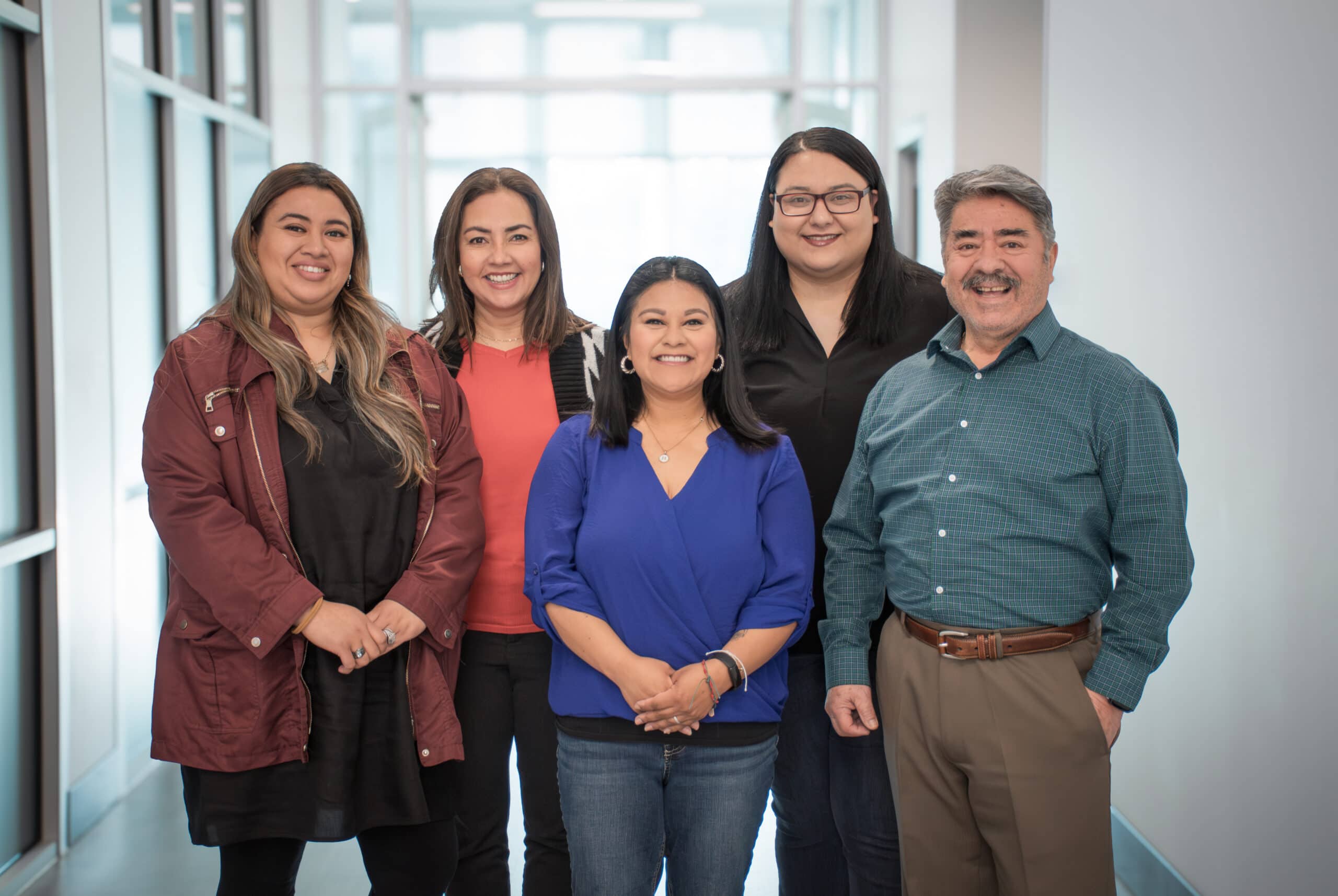UAMS Celebrates First Graduates of Community Health Worker Training Program
| FAYETTEVILLE — The UAMS Institute for Community Health Innovation will graduate seven community health workers (CHW) this month, celebrating the first class to complete the one-year Community Health Worker Training and Apprenticeship Program.
The institute, formerly the UAMS Office of Community Health & Research, has enrolled 88 CHWs from 21 counties across Arkansas since starting the classes last February.
The Community Health Worker Training and Apprenticeship Program provides 80 hours of core training to new and experienced CHWs across the state to give them the tools to better support their local communities. After the initial 80 hours of core training, CHWs can enroll in the program’s full-year training, which requires an additional 80 hours of supplemental training, 2,000 hours of on-the-job training and demonstrated skills in 21 core competencies, such as providing culturally appropriate health education, connecting individuals to resources and expanding health literacy.
“I became a CHW to help people who were facing challenges similar to those I had faced,” said Guada Campos, a community health worker with the UAMS Institute for Community Health Innovation. “This training helped me build a network of other community advocates and provided me with the tools I need to make a meaningful impact in my career.”
According to the World Health Organization, CHWs are frontline public health professionals and trusted community resources who serve as a link between health services and the communities they serve and are effective in extending health care services to vulnerable populations.
UAMS and its partners have worked together since the COVID-19 pandemic to expand the state’s CHW workforce. During the pandemic, the institute trained and deployed more than 150 CHWs to 40 counties throughout the state, while more than 350 CHWs statewide are affiliated with the institution.
As part of the CHW Training and Apprenticeship Program, the UAMS institute partnered with the University of Arkansas to offer college credit to trainees and added an “upskill” component, which provides opportunities for more experienced CHWs to receive new certifications and on-the-job training. UAMS was also instrumental in advocating for community health worker to become an officially recognized state title, which Arkansas added in July 2023.
“Watching these community health workers evolve over the past year, seeing their confidence grow and hearing their ideas for implementing the things they have learned has been an incredibly rewarding experience,” said Rosalinda Medrano Green, the program’s director. “Their growth serves as a reminder of the impact of community health workers and reaffirms our commitment to expansion of community health workers throughout the state.”
UAMS is the state’s only health sciences university, with colleges of Medicine, Nursing, Pharmacy, Health Professions and Public Health; a graduate school; a hospital; a main campus in Little Rock; a Northwest Arkansas regional campus in Fayetteville; a statewide network of regional campuses; and eight institutes: the Winthrop P. Rockefeller Cancer Institute, Jackson T. Stephens Spine & Neurosciences Institute, Harvey & Bernice Jones Eye Institute, Psychiatric Research Institute, Donald W. Reynolds Institute on Aging, Translational Research Institute, Institute for Digital Health & Innovation and the Institute for Community Health Innovation. UAMS includes UAMS Health, a statewide health system that encompasses all of UAMS’ clinical enterprise. UAMS is the only adult Level 1 trauma center in the state. UAMS has 3,485 students, 915 medical residents and fellows, and seven dental residents. It is the state’s largest public employer with more than 11,000 employees, including 1,200 physicians who provide care to patients at UAMS, its regional campuses, Arkansas Children’s, the VA Medical Center and Baptist Health. Visit www.uams.edu or uamshealth.com. Find us on Facebook, X (formerly Twitter), YouTube or Instagram.###
